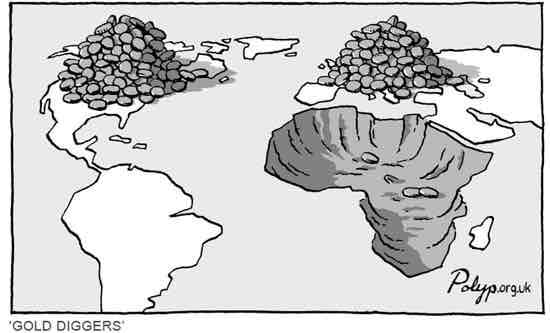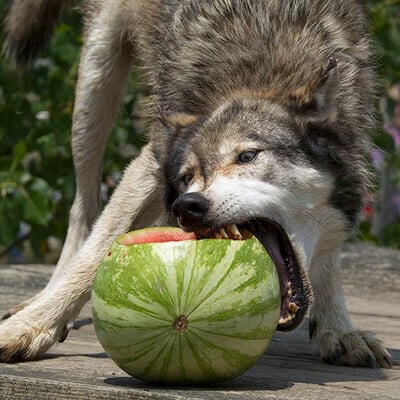Bananas are ridiculously cheap even up here in Canada, and they aren’t grown anywhere near here. Yet a banana can grow, be harvested, be shipped, be stocked, and then be purchased by me for less than it’d cost to mail a letter across town. (Well, if I could buy a single banana maybe…or maybe that’s not the best comparison, but I think you get my point)
Along the banana’s journey, the farmer, the harvester, the shipper, the grocer, the clerk, and the cashier all (presumably) get paid. Yet a single banana is mere cents. If you didn’t know any better, you might think a single banana should cost $10!
I’m presuming that this is because of some sort of exploitation somewhere down the line, or possibly loss-leading on the grocery store’s side of things.
I’m wondering what other products like bananas are a lot cheaper than they “should” be (e.g., based on how far they have to travel, or how difficult they are to produce, or how much money we’re saving “unethically”).
I’ve heard that this applies to coffee and chocolate to varying extents, but I’m not certain.
Anyone know any others?
I would argue that of the three items you listed (bananas, coffee, chocolate) that the main reason those items are “cheap” is exploitation of the workers and economies of the global south.
https://daily.jstor.org/fruit-geopeelitics-americas-banana-republics/
This is just one popular science article on the topic, and it just brushes the surface of how colonial politics have stripped the global south of resources while simultaneously building capital in the global north.
This single pane comic is the jist of it.

“This Jacobo, he’s making us pay minimum wages!.. and that’s not all, he’s taking our unused land and giving it back to the people! Does that sound familiar?”
Without a doubt. And when it’s things that can only grow in those parts of the world, it can be harder to find alternatives.
Not that I can afford them, lol
What about Asia? Are we forgetting Africa is China’s China right now?
100%. Exploitation is not limited to one continent or group of people.
If China does to Africa what they did to themselves, that would be awesome!
Hold up. We exploit South America pretty hard too.
Absolutely, the comic was from a piece on Imperialism from Europe in Africa, but a more comprehensive one would show the entire global south dug up.
China is currently colonizing Africa and SE Asia as well.
Snack cakes. Do you want to know why America has an obesity epidemic?
Because a whole box of Swiss cake rolls is $2.50 at Walmart and a deli salad is $5.00.It’s not much different in Canada. I strongly dislike all the HFCS-sweetened stuff.
The United States subsidizes the hell out of dairy products. Dairy (and by extension, beef) is way, way cheaper than it should be.
For anyone curious about this, go google “cheese caves”. The US government has massive caverns full of cheese. The government keeps buying cheese to subsidize the dairy industry, and ensure they keep enough dairy cows around.
But this also means they have a metric fuckload of cheese, and no way to get rid of it. They can’t just give it away to the public or sell it at cost, because that would crash the price, which would harm the farmers, which would defeat the entire purpose of the subsidy in the first place. So they just lock it in a cave. The government has entire caves that are just packed full of cheese. It’ll never be eaten, and is simply left there to age.
I believe one of the biggest reasons for even keeping the cheese around at all (instead of just doing something like tossing it into a volcano) is so they can use it as a strategic food reserve during war or famine. If, for instance, the government suddenly needs to feed a much larger army, it can start tapping into that massive food reserve simply by opening the cheese caves and pulling out the (now very aged) cheese. But that’s a very large “what if”. Or maybe there’s some big disease that wipes out the majority of the dairy cows. The government would be able to keep shelves stocked while farmers work on replenishing their herds.
Government cheese is called that for a reason. Anyways I totally agree with you but it’s interesting so I’m just providing a link for anyone who is interested in learning more.
Government cheese is a commodity cheese that was controlled by the US federal government from World War II to the early 1980s. Government cheese was created to maintain the price of dairy when dairy industry subsidies artificially increased the supply of milk and created a surplus of milk that was then converted into cheese, butter, or powdered milk. The cheese, along with the butter and dehydrated milk powder, was stored in over 150 warehouses across 35 states.
Isn’t there the thing where the cheese needs to age by just sitting there, the farmer needs cash flow, so the cheese is put up as collateral. (But yes there is government cheese too.)
Rice. A 20lb bag can provide 70% of your food volume for a month and costs like $10. Easily the best poverty food hack there is.
Unfortunately a lot of rice is contaminated with arsenic due to pesticides. The only way to remove the arsenic also removes most of its nutrients. So you might be better off going for a different grain like wheat, oats or barley.
Arsenic aside, rice is probably one of the best deals when you consider how long a bag can feed you.
Seems like quite the FDA violation. Is it true?
https://www.ncbi.nlm.nih.gov/pmc/articles/PMC10375490/#:~:text=The investigation concluded that the,'%20dry%2Dbrown%20rice%20cereal.
It should be an FDA violation, but the demand for rice is powerful and rice is a staple food for much of the world. It’s like if the FDA tried to ban alcoholic beverages because they contain toxic chemicals (alcohol.)
As far as I know just cooking the rice with enough water solves the arsenic problem for the most part.
This is true for white rice. But using a lot of water also removes the vitamin fortification and makes it less nutritious. So you are left with the dilemma or either eating the arsenic or losing the vitamins.
For brown rice, no amount of water can remove all the arsenic since a lot more of it is in the outer part of the grain. This is unfortunate because in all other respects brown rice is the healthier option.
Also, some regional varieties of rice have less arsenic than others. Basically avoid rice grown in any country that uses or has ever used arsenic based pesticides. Even then, the rice will have a little arsenic since it is a naturally occurring mineral.
That is good to know, thank you 🙂.
We can’t grow rice in Canada, so that definitely applies to us! Still cheap here, though.
Just about all of it.
Most farming gets subsidised. This is a good thing. You want excess in the system. You’ve seen what the free markets did to housing. You don’t want that happening to food.
The slavery-in-all-but-name isn’t such a good thing, but hey-ho.
Our housing market is not a free market because government heavily suppresses the supply side.
Removed by mod
Dry beans. A $2 bag makes a massive pot.
But when you think about it, beans should be cheaper than meat or something. Yeah a bag makes a whole bunch of beans but it’s straight ground to plate vs feeding a cow from birth. In fact relatively speaking of seems like the bean to cow cost ratio is out of proportion, the beans should be cheaper or the cow should be more.
Right but consider the work involved in gathering a pound of beans. One can get beans for far less work than that.
Pretty much all food. I can work for 5 minutes and buy 700 Calories’ worth of trail mix. My work consists of walking around a climate controlled room answering questions about things people are buying.
This means that with 15 minutes per day of effort, I get a diet more consistent than my ancestors could get with six hours of work per day.
Food is ridiculously cheap around me.
beef, corn, and almonds
beef takes up an incredible amount of land and water per ‘unit’ nutrition and has a profound impact on the local and global environment. it has an artificially low cost due to subsidies and cheap grain (corn) feed.
feed corn isnt really consumable by humans and takes a large percentage of land. its price is kept low by subsidies.
almonds take a lot of water to grow and are commonly grown in regions where water is scarce and is provided to farmers for little to no monetary cost with few restrictions
Where are you that almonds are cheap?
i never said they were, lol
Does water count? It’s the first thing that always comes to mind for me. I’m certainly not complaining, but it amazes me that, no matter where you go, water, even clean water, is universally free. It’s certainly not unlimited.
That does depend on where you are in the world. Even in North America, not everyone can just turn on a tap.
As well, it’s generally our tax dollars that go to treating and supplying it. So we do pay for it.
That said, you’re absolutely right. It’s my favourite thing to drink, and it probably wouldn’t be if I had to pay for every glass! Lol
Our tax dollars pay for it because a significant portion of the population is dead inside a week if the tap water stops or becomes unsafe. The government takes care of it because the populace can’t be trusted to take care of themselves lol
So as you said, it’s not free really, but there’s a really good reason for that
Coffee and Chocolate for sure. Their prices rely really heavily on slavery or something so very near it you’re splitting hairs by drawing a line.
And even then, with chocolate, costs are rising. You can tell by how prevalent things like “chocolatey chips” are.
We’ve gotten too used to having cheap coffee and chocolate, and I’m disappointed with the substitutes…too bad I can’t afford the ethical stuff quite yet, lol
imo I don’t think there is any food item costs less than it should
edit: I’m speaking as a person who is broke and I buy microwave meals because I don’t have time, money or energy to make/eat other stuff
I would argue that that’s because you should be paid more money. That’s why I’m not suggesting we should be paying more. Just kind of wondering what foods are “artificially” priced low due to exploitation of labour (etc).
Nice try, Davos
I was told food is expensive now.
Bananas are still cheap, though!
Like everything made in China.
A shirt that costs $8? Board game that costs $20?










